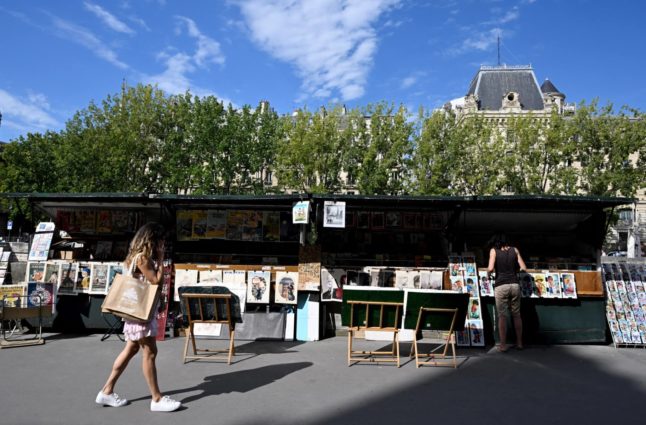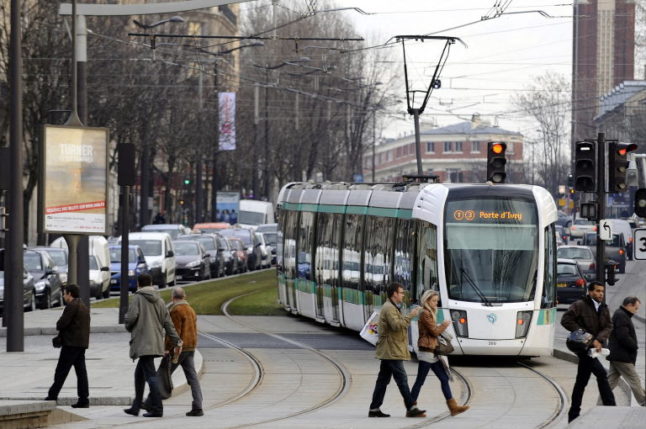The French capital has already been engaged in a long-term plan to cut car usage and encourage more people to walk, cycle or take public transport.
Until now, most infrastructure projects concentrated on cyclists, but on Friday deputy mayor David Belliard unveiled the ‘pedestrian plan’ to make Paris more walkable.
He told French daily Le Parisien: “I know we hear a lot about cycling, but walking is also, and perhaps even more, at the heart of what we’re doing.
“It is the primary mode of transport within the city. It accounts for 65 percent of journeys. It’s also a mode of transport that has increased by 12 percent between 2010 and 2020, because in a dense city like Paris, everything is close at hand.
“What’s more, walking is free, it’s emission-free, it’s noise-free, it’s good for your health and, as we see every time we pedestrianise, it’s also good for local businesses.
“So it’s a major priority – one that has been largely forgotten for decades in favour of the all-car – and one that we want to accelerate.”
Here are the main points of the plan;
Increase pedestrianised spaces – since 2020, according to Belliard, Paris has created an extra 30 hectares of pedestrian space through measures like widening pavements, closing off streets to cars (especially those around schools) and creating new squares. The ambitious goal is to create another 70 hectares of pedestrianised space – making 100 hectares by 2030 (the equivalent of 140 football pitches).
Improve pedestrian safety – the city also has infrastructure projects planned to increase the sense of safety of pedestrians, particularly by separating cycle lanes and pedestrian walkways. Pedestrians will also be given extra crossing time, with the green pedestrian light staying on longer, timed to the walking speed of the elderly.
Municipal police will also be instructed to focus on issues that affect pedestrians, such as cyclists running red lights and motorists parking on the pavement.
Repair pavements – Paris has plenty of damaged and uneven sidewalks, which make navigating them especially hard for the elderly, wheelchair users or parents with buggies. Belliard said that the road maintenance budget will prioritise pavements and pedestrian crossings.
Adapt pedestrian areas to climate change – the spaces dedicated to pedestrians will also change, with extra water fountains installed, trees planted and shelters erected to give shade to people walking in the summer. One of the biggest challenges for Paris is the increasingly hot summers, coupled with the city’s many wide boulevards which provide little or no shade.
The plans build on a longer-term goal of making the city more adapted to walking in – from the pedestrianisation of the banks of the Seine to longer-term plans to ban cars on the Champs-Elysée and strictly limit them in the four central arrondissements of the city.



 Please whitelist us to continue reading.
Please whitelist us to continue reading.
Member comments